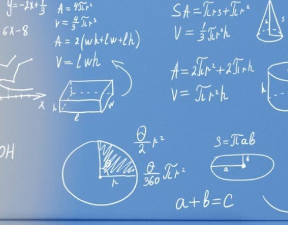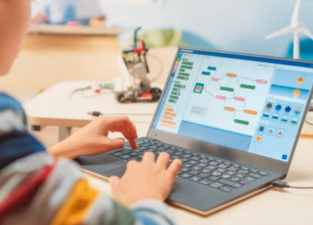Mathematics and programming are inseparable. Programming itself requires the use of many mathematical concepts, such as logical operations, geometric figures, algebraic formulas, etc. But this does not mean that you must fully master mathematics before you can start learning programming. On the contrary, programming can help children better understand and apply mathematical knowledge in practice. Regarding whether children should learn programming before learning algebra, there is currently no unified conclusion. Different opinions are based on factors such as educational goals, cognitive development, and resource allocation. Parents and teachers should pay attention to individual differences and avoid blindly following trends. Prioritize observing children's interests, concentration, and mathematical abilities, for example, by assessing adaptability through logic games or simple programming tasks; when resources are limited, prioritize ensuring a solid foundation in mathematics before expanding to programming, as algebra is a universal tool for most subjects, while programming can be supplemented later; the ultimate goal should be to cultivate holistic thinking, rather than a sequence of single skills.

Each age group
Early childhood stage (3-5 years old):
- Mathematics: At this stage, children's mathematical interest and basic concepts can be cultivated through games and small activities in daily life, such as counting, recognizing shapes and colors.
- Programming: Children can be exposed to programming ideas through simple logical games and graphical programming tools (such as Scratch Jr.) to cultivate their logical thinking.
Primary school stage (6-12 years old):
- Mathematics: Continue to consolidate the foundation and learn basic addition, subtraction, multiplication, division, fractions, decimals, geometry and other knowledge.
- Programming: You can gradually go deeper and learn more complex programming tools and languages (such as Scratch, Python), and stimulate children's interest and creativity through projects and games.
Junior high school and above (13 years old and above):
- Mathematics: Enter more advanced mathematical knowledge, such as algebra, geometry, probability and statistics.
- Programming: You can start learning more professional programming languages (such as Java, C++), develop more complex projects, and even participate in programming competitions and practical application development.

How programming promotes mathematical learning
Programming can promote mathematical learning in the following ways:
- Visually display mathematical concepts: By writing programs, children can intuitively see how mathematical formulas and concepts work in practical applications.
- Solve practical problems: Programming allows children to apply mathematical knowledge to solve practical problems and improve their mathematical application ability.
- Enhance logical thinking: Logical thinking training in programming can help children perform better in mathematical reasoning and problem solving.
Choose appropriate learning methods
- Mathematics learning: Make mathematical learning interesting and vivid through games, interactive exercises, physical operations, etc.
- Programming learning: Choose graphical programming tools and interesting projects to allow children to master programming skills in practice while improving their understanding of mathematics.
